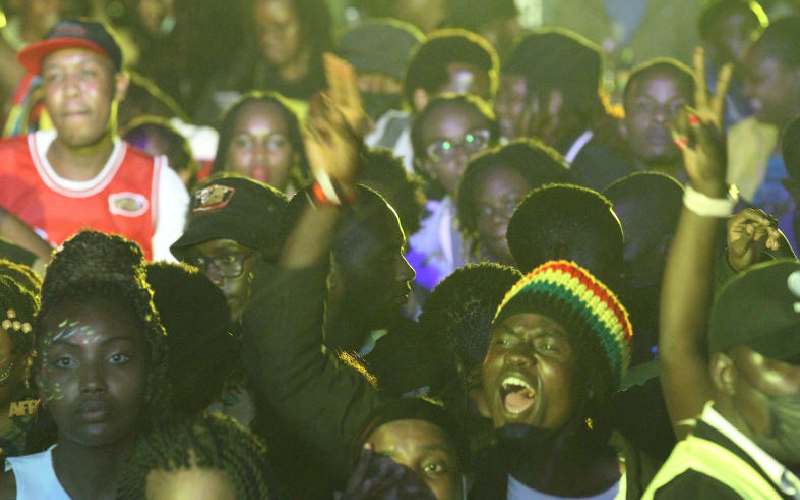×
The Standard e-Paper
Kenya’s Boldest Voice

Revellers during the Vybez Radio Pamoja concert held at the Waterfront, Ngong Racecourse, Nairobi. [Elvis Ogina, Standard]
When reports circulated that Nigerian superstar Adekunle Gold was coming to Kenya on November 13, fans were excited. It was yet another shot in the arm for the entertainment industry after nearly two years of silence.